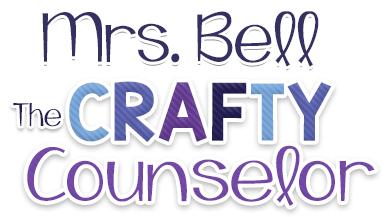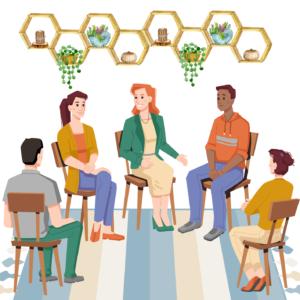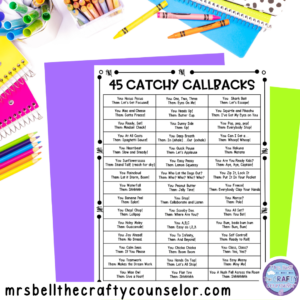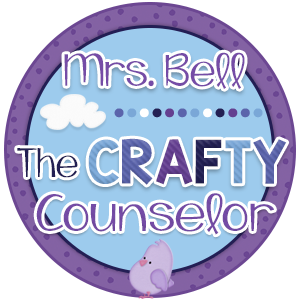Friends Turned Fenemy
I’m sure we’ve all been there. A girl or two is in our office crying their eyes out because of their “friend(s)” hurting their feelings in some way or another. Let’s face it, girls can be really mean. If it’s a group of repeat offenders, it can make you feel really helpless as a counselor.
Sometimes it really is an innocent squabble between true friends that will figure itself out by the end of the day. That is best case scenario. You lend an empathetic ear knowing that they just need to get it all out and then they will feel better. Other times, it seems as if it is a constant dramatic battle that will only end when all parties involved decide to no longer be friends. That is worst case scenario. You are offering rock solid advice that seems to only temporarily help the situation. The Band-Aid you place on their friendship only keeps the peace for a day or two before some other friendship shattering argument takes place. The delicate balance between friendship and full blown diva style meltdowns can make a counselor who is expected to have all the answers want to pull their hair out.
So why do some groups of friends behave this way? One word; frenemies.
Some “friends” do hold true to the definition of this word through their actions.
Friend: a person whom one knows and with whom one has a bond of mutual affection.
The piece that is missing in these volatile friendship groups is the mutual affection component. These groups that find their way to our offices normally contain frenemies, not true friends.
Frenemy: a person with whom one is friendly despite a fundamental dislike or rivalry.
These friendship groups are full of girls who are secretly in competition with each other, girls who are not looking out for each other’s well-being or want to see their “friends” succeed.
Frenemies are girls who act like they are friends but through their actions it is obvious they want to hurt or bring their friends down in order to feel better about themselves at their “friends” expense.
How can we teach our young girls to spot a frenemy? How can we teach them to deal with frenemies or break up with toxic friends? As School Counselors it can feel like a helpless situation, how can we help?
Here are six signs that can help you spot if a “friend” is actually a frenemy.
1. They are untrustworthy.
They do not keep true to their word or keep your secrets safe. You can never be sure if they are loyal to you or have your best interest in mind.
2. They do not seem to care about your feelings.
They do not listen to what you have to say, hurt your feelings often or aren’t there for you when you are hurting.
3. They are hurtful behind your back.
When you are not around, they are not a true friend. This could include talking about you, spreading rumors, laughing at your expense or not standing up for you.
4. They are not there for you when you need them.
When it really counts and you truly need their time or support, they are nowhere to be found. When you really need a true friend to be there for you, there are not there.
5. They discourage you and bring you down.
When good things are happening in your life or you need a supportive shoulder to lean on, they do not shower you in positivity.
6. They are unfriendly a lot of the time.
Your feelings are often hurt, you’re doubting yourself frequently, and you aren’t happy around this person. When you really sit down and think about it, they just aren’t that nice to you.
Here are five steps to dealing with a toxic frenemy:
1. Recognize that the friendship isn’t working out. Take time to decide if this person is a friend or a frenemy. Look back at the six statements above and decide if your “friend” meets those six criteria. If they are a true friend, try to solve the problem that is making the friendship not work, if they are a frenemy, move forward with these steps.
2. Think about if you want to end the friendship. Is there just a temporary problem? Are you happy in this friendship? Do you want to continue this friendship? If you answered no to these questions then you may want to seriously consider ending the friendship because it isn’t good for you.
3. If you do decide that you may want to end the friendship, talk to the person directly. Tell them exactly how you feel about their actions towards you. Be true and tell them exactly what isn’t working for you in this friendship. Either give them a chance to change and work on how they are in your friendship or be honest about wanting to end the relationship.
4. Prepare yourself for them to not take the news very well. It is hard to hear that you aren’t being the best friend or that someone doesn’t want to hang out with you anymore. Be ready for them to say something that isn’t the nicest.
5. Once you’ve said what you have to say and have dealt with their reactions, move forward with life and try to find new people to form healthy friendships with.
As School Counselors, the best thing we can do is be there to listen to our students and hear their concerns. At times it may seem like trivial problems, however to the kids these problems are their entire world at the moment. We have to take them seriously. We should listen, be compassionate, try to help them problem solve on their own and know when to remove ourselves from the situation. Unfortunately, sometimes there is nothing we can do with girl group drama. We can’t help those that don’t want to help themselves. We can do peer mediation, small groups, guidance classes, individual counseling; sometimes even that isn’t enough. After we’ve done all that we can, if the girls aren’t willing to/can’t work out their differences but still want to be friends, as School Counselors we have to let them figure it out on their own. After a certain point, we have to empower them to make their own choices and deal with their interpersonal issues as they see necessary.
Stay Connected:
Follow Me on Pinterest
Click here to read about my Girl’s Group Small Group plan, or you can download your own copy HERE.
Check out my Boy’s Group on my BLOG or TpT
Read more...
Share it...
You might also like...

Hi, I'm Ashley!
I am a school counselor who helps educators to change the lives of students with engaging, creative, and meaningful SEL resources.












